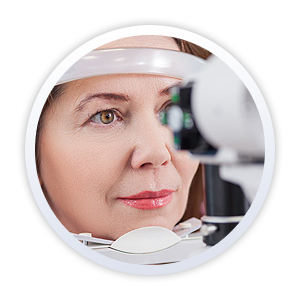Retinitis Pigmentosa (or RP) is a hereditary disease whereby there is progressive retinal degeneration in both eyes over a period of time. The rate of progression of this disease varies by individual, but the disease results in severe visual impairment. Most often, this disease is diagnosed during adolescence or young adulthood. A common and early symptom of the disease is night blindness, which, unlike the name would suggest does not render the individual completely incapable of seeing at night. However, it does render them incapable of perceiving many objects in the dark that others can easily see. Retinitis Pigmentosa eventually causes the individual to lose peripheral vision, then over a series of years progresses to tunnel vision and ultimately to complete vision loss, many people being declared legally blind by the age of 40.
Genetic testing can help provide an early, accurate diagnosis of RP, as well as assist with determining the likelihood of passing the disease to offspring. Currently there are no treatments to stop the progression of Retinitis Pigmentosa; however, there are ongoing and promising avenues of research around gene therapy, retinal sheet transplantations, stem-cell treatments and drug therapies.





